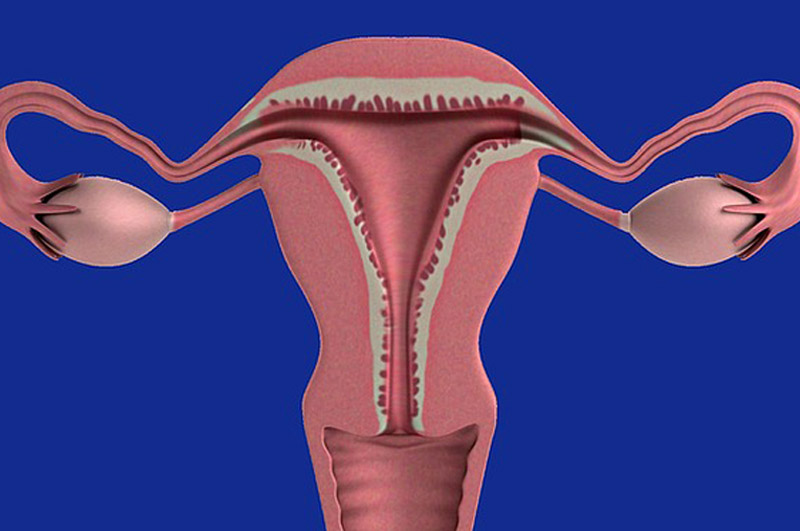7 need-to-knows about migraine as well as some updates on the latest treatment developments
Blog
-
July 24, 2018Read more »
-
July 20, 2018
-
July 20, 2018
-
Read more »
 The dramatic before-and-after images show eight men's incredible response to cutting-edge treatment.
The dramatic before-and-after images show eight men's incredible response to cutting-edge treatment. -
Read more »
 It’s believed that this immunotherapy and its dual approach to fighting cancer will be a notable complement to existing immuno-oncology treatments.
It’s believed that this immunotherapy and its dual approach to fighting cancer will be a notable complement to existing immuno-oncology treatments. -
Read more »
 Researchers believe these differences are due to a reduced immunosuppressive tumor environment in older patients.
Researchers believe these differences are due to a reduced immunosuppressive tumor environment in older patients. -
July 04, 2018Read more »
 The latest approval renders the previous 'temporary approval' a full approval, without further results needed.
The latest approval renders the previous 'temporary approval' a full approval, without further results needed. -
July 04, 2018Read more »
 The 52% (95% CI, 41-62) ORR included a complete response rate of 40% and a partial response rate of 12%.
The 52% (95% CI, 41-62) ORR included a complete response rate of 40% and a partial response rate of 12%. -
July 04, 2018Read more »
 The FDA has approved a wearable device to treat withdrawal symptoms such as agitation, anxiety, depression, and opiate cravings.
The FDA has approved a wearable device to treat withdrawal symptoms such as agitation, anxiety, depression, and opiate cravings. -
July 04, 2018Read more »
 Researchers say the addition of Keytruda (pembrolizumab) in this study almost doubled the response rate of chemo for patients with NSCLC.
Researchers say the addition of Keytruda (pembrolizumab) in this study almost doubled the response rate of chemo for patients with NSCLC. -
July 04, 2018Read more »
 The study showed that the relative survival gain almost doubled in men, compared to female patients, regardless of the type of cancer and drugs given.
The study showed that the relative survival gain almost doubled in men, compared to female patients, regardless of the type of cancer and drugs given. -
June 14, 2018Read more »
 Tagrisso (osimertinib) has been approved in Europe to treat Epidermal Growth Factor Receptor (EGFR) mutated non-small cell lung cancer (NSCLC) as a first-line treatment.
Tagrisso (osimertinib) has been approved in Europe to treat Epidermal Growth Factor Receptor (EGFR) mutated non-small cell lung cancer (NSCLC) as a first-line treatment. -
Read more »
A new preventive migraine treatment, Aimovig (erenumab-aooe), poses promising possibilities for some migraine sufferers.

-
Read more »
 New clinical results show that Durvalumab improved survival (versus a placebo) in patients with non–small cell lung cancer.
New clinical results show that Durvalumab improved survival (versus a placebo) in patients with non–small cell lung cancer. -
June 13, 2018Read more »
 The first-ever preventative treatment for migraine in adults, Aimovig (erenumab-aooe) is now approved by the Food and Drug Administration.
The first-ever preventative treatment for migraine in adults, Aimovig (erenumab-aooe) is now approved by the Food and Drug Administration. -
Read more »
 Lucemyra (lofexidine hydrochloride), now approved by the Food and Drug Administration, may offer relief (and new hope) for patients experiencing withdrawal symptoms from opioid dependence.
Lucemyra (lofexidine hydrochloride), now approved by the Food and Drug Administration, may offer relief (and new hope) for patients experiencing withdrawal symptoms from opioid dependence. -
Read more »
This will provide a much-needed alternative therapy for a debilitating disease with limited treatment options.

Moderately to severely active ulcerative colitis can now be treated with Xeljanz (tofacitinib), following the expanded approval by the Food and Drug Administration (FDA). This will provide a much-needed alternative therapy for a debilitating disease with limited treatment options. -
Read more »
"We currently test for liver cancer using ultrasound and a blood protein marker called alpha fetoprotein," says John Kisiel, M.D., a gastroenterologist at Mayo Clinic. "Unfortunately, these tests are not very sensitive for curable stage liver cancers, and most patients who need this testing do not have it easily available or [are] not able to receive it often enough to be effective." The new advance by the team opens the door to further development of a DNA test.

-
Read more »
This new development may increase chances of patients discussing the disease with their doctor...

A new package insert that includes information/data about psoriasis in the genital area has been approved by the Food and Drug Administration (FDA). -
Read more »
A team of researchers from the Leibniz-Institute of Freshwater Ecology and Inland Fisheries (IGB) has succeeded in demonstrating experimentally (in a lab) that genetic diversity makes populations more resistant to disease.

-
Read more »
Researchers have built an ingestible sensor equipped with genetically engineered bacteria that can diagnose bleeding in the stomach or other gastrointestinal problems. Ultra-low-power sensors carrying genetically engineered bacteria can detect gastric bleeding.

-
Read more »
The Entomological Society of America reports today that a new study from the CDC (Centre for Disease Control) in the USA shows that permethrin-treated clothing may stop ticks from biting. This will thus reduce transmission of diseases like Lyme disease. Lab tests showed germ-carrying ticks can't move properly after contact with treated garments, making them sluggish and likely interfering with their ability to bite.

-
May 18, 2018Read more »
Service Announcement for price changes to 12 medicines. For 9 medicines we have negotiated lower prices for patients, 3 medicines have increases.

-
Read more »
‘Unapproved medicines’, ‘compassionate use’, ‘early access drugs’..

-
April 11, 2018Read more »
A personalised vaccine which boosts a patient’s own immune system has nearly doubled the number of women surviving ovarian cancer by two years.

-
April 09, 2018Read more »
Following an earlier negative decision, NICE is now recommending NHS use of Roche’s immunotherapy Tecentriq for lung cancer.

-
April 06, 2018Read more »
Rubraca (rucaparib), already approved as a treatment for BRCA positive ovarian cancer, has been approved as a maintenance therapy for ovarian cancer regardless of BRCA mutation.

-
Read more »
The FDA approves Blincyto (blinatumomab) for patients with B-cell ALL, who are in remission but still have minimal residual disease.

-
March 22, 2018Read more »
FDA approves Tasigna (nilotinib) for certain pediatric patients with Ph+ CML in chronic phase.





